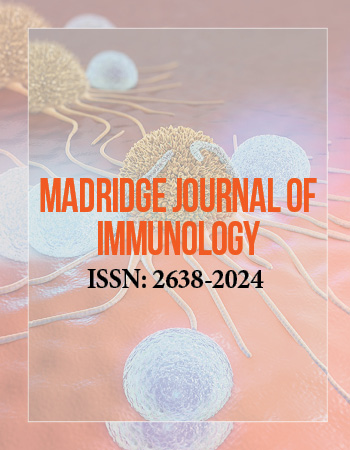International Conference on Immunology and Immunotechnology
November 1-3, 2017 Barcelona, Spain
The Role of Dynamic Genome-Wide Changes of Histone H3K4Me3 Methylation in Regulating the Immune Response of Macrophages to Mycobacterium Tuberculosis Infection
Bose Institute, India
Objectives: The role of epigenetics in dictating the triggering of an appropriate immune response from the macrophage, and the ability of virulent Mycobacterium tuberculosis (Mtb) to dampen this reponse, has been scantily explored. Our objective was to analyze the role of genome-wide histone H3K4Me3 in the immune response to virulent (H37Rv) as opposed to the avirulent (H37Ra) strain of Mtb.
Methods: We infected THP-1 macrophages with Mtb followed by chromatin immunoprecipitation using H3K4me3 antibody and deep sequencing to map the global occupancy of H3K4Me3. A select set of genes were chosen to validate the occupancy of H3K4Me3 in their upstream regions by ChIP-qPCR. The expression levels of selected genes were analyzed. The levels of selected cytokines were measured after infection.
Results: Differences were observed in the temporal occupancy profiles in H37Rv vs. H37Ra-infected, differentiated THP-1 macrophages. We focused on a set of genes for which H3K4Me3 occupancy mapped close to the TSS, and which were of importance to the innate immune response, namely SATB1, DUSP4, a MAP kinase phosphatase and ATF2, a transcription factor. We observed enhanced H3K4Me3 occupancy near the TSSs of all three genes, in infected macrophages. Occupancy levels were higher in H37Rv than H37Ra in the time scales analyzed. This correlated with higher gene and protein expression levels of all three of the above in H37Rv vs. H37Ra. ASH1L, an H3K4 methylating enzyme occupied the promoters of all three of the above genes. Knockdown of ASH1L attenuated their expression. SATB1 and DUSP4 were also linked to attenuation of the expression of a set of inflammatory cytokines.
Conclusions: We hypothesize that differential H3K4Me3 modification triggered in macrophages by virulent vs. avirulent Mtb, is linked to differential regulation of the expression of immune-regulatory genes in macrophages. Virulent Mtb manipulates the host epigenetic machinery as a possible host subversion strategy.
Biography:
Arijita Subuddhi is currently working on two projects as a senior research fellow (Phd scholar) in Bose Institute, India. She has one paper as a co author named “MicroRNA let-7 Modulates the Immune Response to Mycobacterium tuberculosis Infection via Control of A20, an Inhibitor of the NF-kB Pathway” published in Cell Host & Microbe 17, pages 1-12, March 11, 2015.


